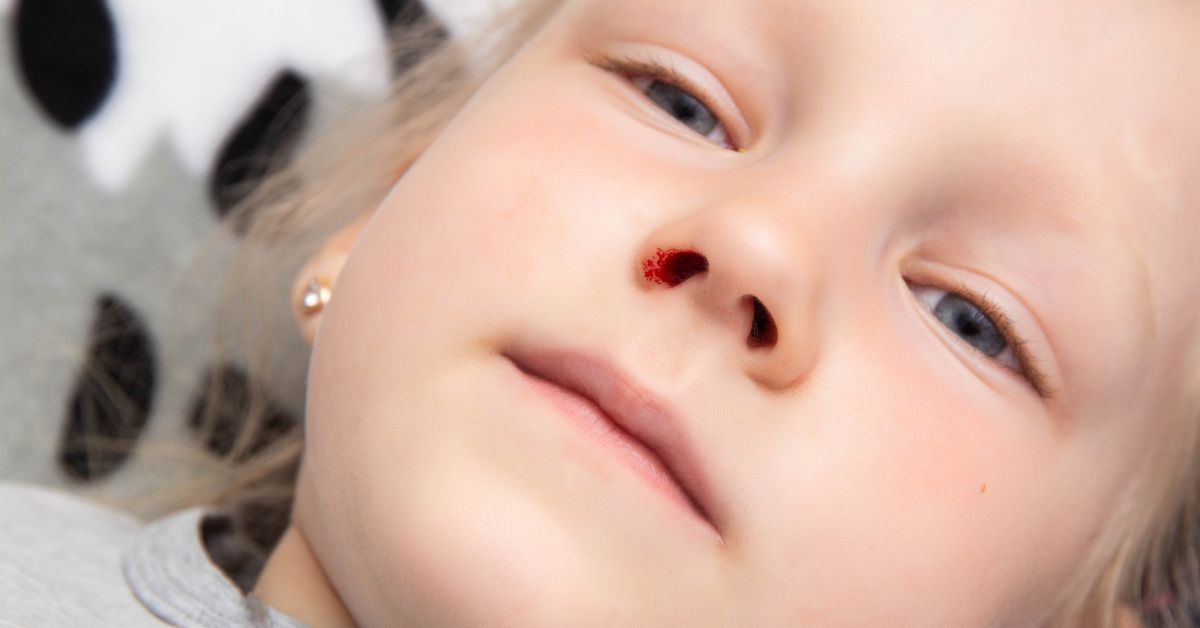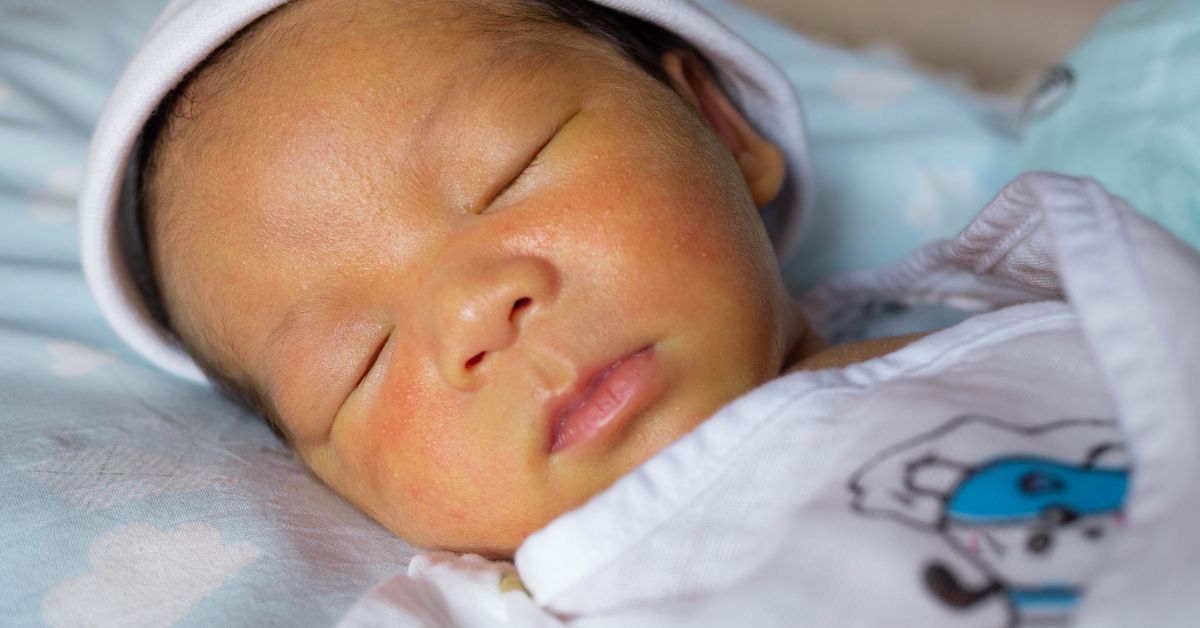Infant wheezing is a common concern among parents, causing anxiety despite its frequent occurrence. This article aims to provide detailed insights into the causes of this condition, identifying symptoms, and exploring safe and effective treatment approaches.
Identifying Infant Wheezing
The recognition of infant wheezing often involves discerning characteristic sounds during breathing, typically a low-pitched tone. To hear this sound clearly, parents can place their ears close to the baby’s mouth, detecting wheezing akin to snoring or musical notes. In severe cases, infants may exhibit prolonged and strenuous breathing efforts.

Infants experiencing wheezing can be identified by the sound they produce during breathing
However, wheezing might not always be easily audible using regular hearing. In such instances, a medical professional may employ a stethoscope to better identify these sounds, commonly referred to as snoring or rattling noises in medical terms.
In infants, distinguishing between wheezing and breath sounds caused by nasal congestion can be challenging. Since infants primarily breathe through their noses, minor nasal blockages due to colds may cause a congested breathing sound. To clear nasal congestion, a saline solution with 2-3 drops can be applied to the baby’s nose, followed by reevaluation. If nasal congestion is the culprit, breathing sounds should become more regular after clearing the congestion.
Causes of Infant Wheezing
Various respiratory conditions can contribute to airway obstruction in infants, including bronchiolitis (bronchial inflammation), bronchitis, and pneumonia. Bronchiolitis is prevalent in infants under six months, while asthma is a leading cause in children aged 18 months and older.
Less common causes include foreign objects in the airways, tuberculosis, pulmonary edema, and congenital defects in the bronchi or bronchi compression due to abnormal blood vessels, tumors, or lymph node enlargement. In these cases, infants may display prolonged wheezing and difficulty breathing.
Is Infant Wheezing Dangerous?
1. Whistling Sound during Breathing
When the nose is congested, infants may produce a whistling sound while breathing. Even a small amount of mucus or formula can narrow the baby’s tiny nose, hindering airflow and creating a peculiar whistling sound during inhalation and exhalation. Once the nose is cleared, wheezing or whistling noises should diminish.
2. Distinctive Wheezing Sounds
Obstruction in the trachea by mucus often causes wheezing sounds during breathing. This is frequently a sign of bronchitis, a condition that leads to swelling in the bronchial tubes and trachea, narrowing the air passages and intensifying breathing.
3. Labored Breathing
Wheezing during breathing in infants is often symptomatic of respiratory obstruction or conditions like bronchitis, pneumonia, or asthma. Extended wheezing may result from foreign objects in the airways, congenital defects, or compressed bronchi.
4. Rapid Breathing in Infants
Infants with pneumonia often exhibit rapid and irregular breathing patterns. This condition, commonly caused by viruses or bacteria, results in the accumulation of fluid in the lung sacs. Infants may breathe rapidly, sometimes accompanied by cyanosis and persistent coughing.

Rapid breathing in infants is one of the signs that the baby is experiencing wheezing
When dealing with infant wheezing, using saline solution to moisten the baby’s nose and gently suctioning it can prove helpful. If congestion is the cause, this approach can facilitate easier breathing, allowing the baby to play, breastfeed, sleep, and gain weight regularly. Infants under three months exhibiting wheezing should be promptly taken to the hospital, as this may signal a severe underlying condition.
For persistent wheezing lasting more than four weeks, especially when accompanied by difficulty breathing, a specialized medical examination is recommended. Further examinations such as X-rays, ultrasounds, respiratory function tests, chest CT scans, or respiratory endoscopy may be necessary.
Self-administering medications to infants, including antibiotics, expectorants, anti-inflammatories, etc., is discouraged, as it may be ineffective and potentially exacerbate the infant’s condition. In cases where wheezing is accompanied by breathing difficulties, fever, or rapid breathing, seeking medical attention promptly is advisable.
To prevent infant wheezing, parents can introduce lysine-rich foods and supplements containing essential minerals and vitamins such as zinc, chromium, selenium, and B-group vitamins. These support the immune system, enhance immunity, and reduce the risk of respiratory illnesses like bronchitis and the flu.
Improving Infant Wheezing Conditions
Treating infant wheezing is contingent on the specific underlying cause. However, there are common approaches that parents can consider:
1. Saline Solution and Nasal Aspiration
Using a saline solution to moisten the baby’s nose and aspirating it to eliminate mucus or formula can aid the baby in breathing more comfortably, playing a role in maintaining regular feeding, sleep, and weight gain.
2. Maintaining Moisture in the Environment
Employing a humidifier in the baby’s room can reduce wheezing by creating a moist environment, offering relief to the infant.
3. Cleaning Nasal Cavities with Saline Water
Rinsing the infant’s nasal passages with saline solution can remove mucus and improve respiratory passage clarity.
4. Elevating the Infant’s Head While Sleeping
Placing a pillow or a light object under the baby’s head during sleep can enhance their comfort by alleviating wheezing.

Elevating the baby’s head during sleep is recommended to minimize wheezing conditions
For severe or prolonged cases of wheezing, it is advisable to consult a specialist for a more accurate diagnosis and treatment plan. Parents should avoid self-medication and seek professional medical advice if the infant experiences difficulty breathing or persistent wheezing. The article has provided information on infant wheezing and related aspects, emphasizing the importance of consulting a specialist for tailored advice and proper treatment.
Kiểm Duyệt Nội Dung
More than 10 years of marketing communications experience in the medical and health field.
Successfully deployed marketing communication activities, content development and social networking channels for hospital partners, clinics, doctors and medical professionals across the country.
More than 6 years of experience in organizing and producing leading prestigious medical programs in Vietnam, in collaboration with Ho Chi Minh City Television (HTV). Typical programs include Nhật Ký Blouse Trắng, Bác Sĩ Nói Gì, Alo Bác Sĩ Nghe, Nhật Ký Hạnh Phúc, Vui Khỏe Cùng Con, Bác Sỹ Mẹ, v.v.
Comprehensive cooperation with hundreds of hospitals and clinics, thousands of doctors and medical experts to join hands in building a medical content and service platform on the Doctor Network application.

























